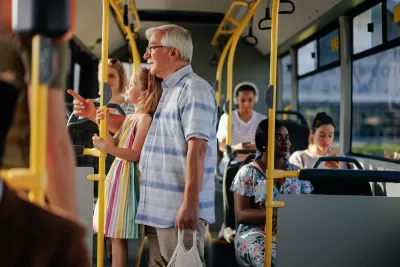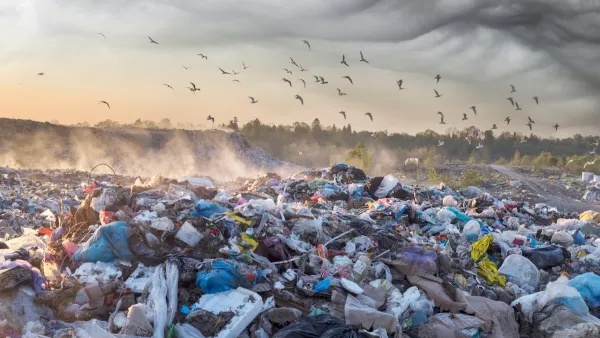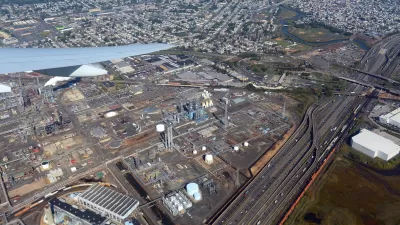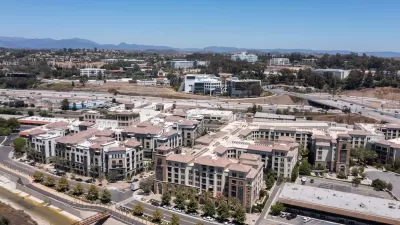A medical student calls for improving public transit to boost the health of people and the environment.

In an opinion piece in The Equation, Harvard medical student Aroub Yousuf argues that access to public transit is key to improving public health. In addition to greenhouse gases, “Conventional cars, trucks and buses also emit fine particulate matter, volatile organic compounds, carbon monoxide, and sulfur dioxide, all of which are associated with respiratory irritation, infection, and chronic disease.”
As Yousuf explains, “I see the direct impact that this cocktail of pollutants has on the increasing severity of respiratory conditions in patients, all while knowing that this same source of pollution is destroying the health of the planet.”
Yousuf notes that public transportation has the potential to keep people healthier, both by reducing harmful emissions and by leading to more physical activity in getting to and from stations and “increased access to public transportation has been shown to improve mental health outcomes in older adults, decreasing feelings of social isolation.”
Yousuf calls on public officials to invest in public transit and view it as a public good rather than a for-profit enterprise. “Investing in reliable, accessible transit service is essential—not only to the 10 million US households who don’t own a vehicle, but also as the bedrock for thriving communities and a better quality of life for all.”
FULL STORY: Investing in Public Transit Is Investing in Public Health

Maui's Vacation Rental Debate Turns Ugly
Verbal attacks, misinformation campaigns and fistfights plague a high-stakes debate to convert thousands of vacation rentals into long-term housing.

Planetizen Federal Action Tracker
A weekly monitor of how Trump’s orders and actions are impacting planners and planning in America.

In Urban Planning, AI Prompting Could be the New Design Thinking
Creativity has long been key to great urban design. What if we see AI as our new creative partner?

How Trump's HUD Budget Proposal Would Harm Homelessness Response
Experts say the change to the HUD budget would make it more difficult to identify people who are homeless and connect them with services, and to prevent homelessness.

The Vast Potential of the Right-of-Way
One writer argues that the space between two building faces is the most important element of the built environment.

Florida Seniors Face Rising Homelessness Risk
High housing costs are pushing more seniors, many of them on a fixed income, into homelessness.
Urban Design for Planners 1: Software Tools
This six-course series explores essential urban design concepts using open source software and equips planners with the tools they need to participate fully in the urban design process.
Planning for Universal Design
Learn the tools for implementing Universal Design in planning regulations.
Gallatin County Department of Planning & Community Development
Heyer Gruel & Associates PA
JM Goldson LLC
City of Camden Redevelopment Agency
City of Astoria
Transportation Research & Education Center (TREC) at Portland State University
Jefferson Parish Government
Camden Redevelopment Agency
City of Claremont





























